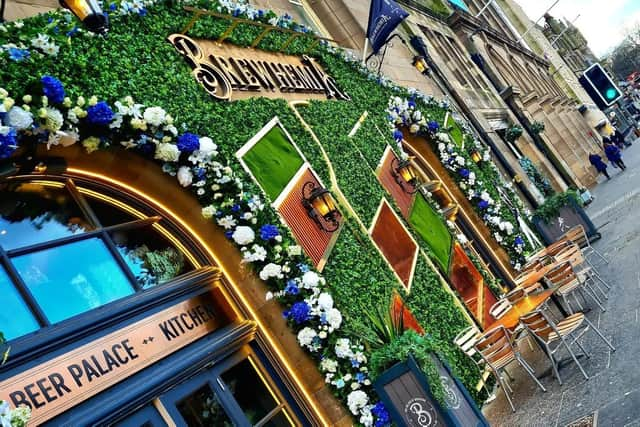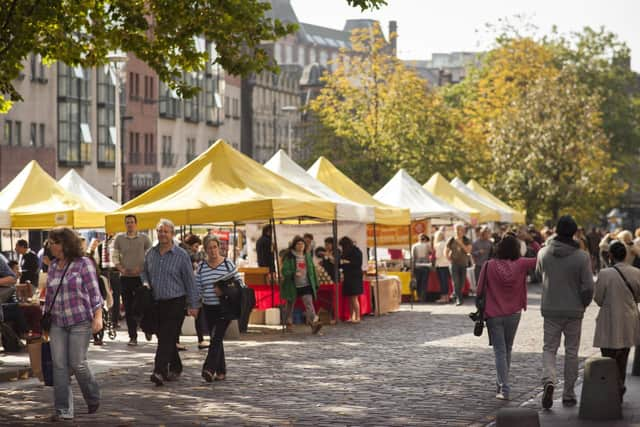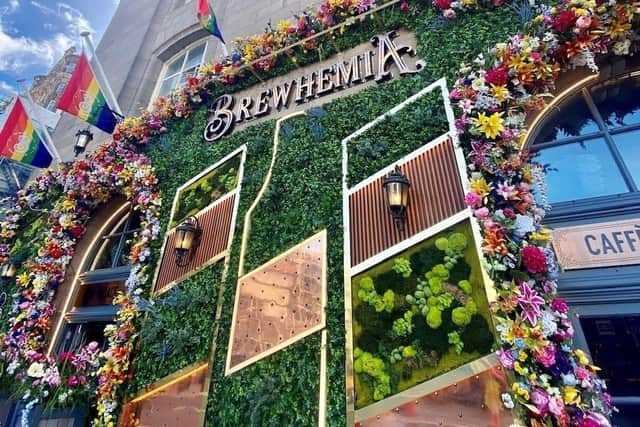Cost-of-living crisis: Scotland’s nightlife facing ‘biggest ever crisis’ and mass closures over soaring energy bills
Widespread closures and collapses are being predicted over the next few months without intervention from government, due to a deepening crisis over soaring costs. There are predictions some businesses may shut down for several months at the start of next year as it will be less financially damaging than trying to stay open.
The scale of the crisis, which was described as worse than Covid due to the lack of government support, was laid bare at an industry summit staged in Glasgow by the Night Time Industries Association (NTIA) in Scotland.
Advertisement
Hide AdAdvertisement
Hide AdA survey the association carried out in the summer found one in three businesses were “unsure” if they would be able to survive over the next 12 months and 25 per cent admitted they were “not confident”.


Its event was staged weeks after Scottish Government agency Creative Scotland warned one in four arts organisations were at risk due to a “perform storm" of factors.
Gavin Stevenson, vice-chair of the NTIA in Scotland, is director of the Mor-Rioghain Group, which owns The Gellions and Monty’s and The Highlander in Inverness.
He said: “We have probably never seen such a precarious time for large parts of the sector. We’re seeing more and more reports of businesses closing. Everybody that is still open now is definitely going to try to get through the festive season.
"But January and February are definitely going to be worrying times in terms of whether people will be able to stay open and pay their bills.


"Some may choose to close down for the traditionally slower months of the year. Others may be forced to acknowledge that their businesses are just not viable with electricity bills that are 200, 300 or 400 per cent higher than what they were.
“It will be very interesting to see what comes out of the Chancellor’s forthcoming statement and what long-term cushioning might be availability for hospitality, which by their nature are energy-intensive businesses."
Advertisement
Hide AdAdvertisement
Hide AdPaul Smith, chief executive of the Castle Leisure Group, which runs Brewhemia in Edinburgh and the Fubar in Stirling, said: “Make no mistake, the energy crisis is the biggest crisis our industry has ever faced. This is worse than Covid.
"When Covid came along, we didn’t know what a pandemic was and we hadn’t lived through it. But very quickly the Government stepped in and brought us furlough and bounce back loans. That’s what saved our industry. We’re not going to get that level of support this time round.


"I’m not sure what the Government is going to do this month, but I am sure that they won’t improve upon what is already on the table. I think there’s every risk that it will be reduced.
"The problem we have in closing venues down for six or nine months or however long it takes to get through this is that we don’t have furlough. You have to pay the redundancy costs. That will just bust businesses. That’s why it’s worse than the pandemic.
“With one of our premises, our electricity costs went from £28,000 to £160,000. There’s just not that cash in the business.
"Government support is the only thing that’s goes to save the industry and small businesses.”


Louise Maclean, business development director at the Signature Pub Group, which runs Cold Town House, The Black Bull and Copper Blossom in Edinburgh, The Saint in St Andrews and The Spiritualist in Glasgow, said: "The bottom line is that our energy costs are now £1 million higher across our business compared to where we were in 2019.
Advertisement
Hide AdAdvertisement
Hide Ad"When we add in all the other additional costs we have to deal with now, with things like inflation, our additional costs are nearly £2.8m. We didn’t make that in profit in 2019. The maths just don’t work.
"We are now at the stage where we are only trading profitable hours. We used to be open from 9am to 1am, but we’ve not done that since the pandemic.
"At the moment we have to have one eye on the future and have to think that in a couple of years we will come out of this with a business at the end of it. We have to insulate our business.
"I kind of want to say to the Government ‘do you want a hospitality sector? Do you actually want a thriving hospitality and tourism industry?’ I cannot see any evidence that they do.”
Stephen McGowan, one of Scotland’s leading licensing lawyers, said the rise in energy costs was the number one factor which had left businesses in a prolonged state of “crisis".


He told the summit: “I have a number of clients who have said to me that they are going to close because they cannot afford to pay their bills. I have a number of clients who have said to me that they are going to close maybe for three days a week, or are going to close for a certain period perhaps over the winter and maybe reopen at some point towards Easter.
"Different parts of the country may be affected in different ways, but it is a great concern for those businesses and in turn the people they employ.”
Advertisement
Hide AdAdvertisement
Hide AdMichael Kill, chief executive of the NTIA, said: “It just feels that there is an absolute wilful intent to collapse some parts of our sector. It is going to be very difficult for many businesses to survive unless there is a broad spectrum of support.
“There is a false economy at the moment. We can’t staff businesses well enough at the moment. Profits are eroded. People may think that venues, bars and restaurants look busy at the moment, but the reality is the profit line is so small when we get to January we are going to see a considerable collapse without intervention.”
Comments
Want to join the conversation? Please or to comment on this article.
